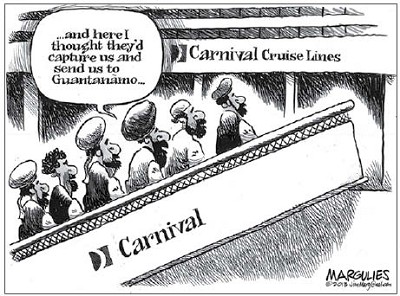That's The Way The BPOL Bounces
Published 2:56 pm Thursday, March 7, 2013
The BPOL tax continues to be a political football in the General Assembly, much to the consternation of towns like Farmville that depend so heavily on its revenue. The BPOL, or Business, Professional, Occupational License, Tax, is the second leading source of revenue, behind only the Town's meals tax. The Town of Farmville receives more than $1 million in revenue each year from the BPOL tax and would be hard-pressed to make up that revenue loss were the General Assembly to do away with it or reduce the revenue stream in any significant way.
More accurately, the taxpayers of Farmville would be hard-pressed to make up the difference of any reduction in BPOL tax revenue. The Town would have to increase other taxes, like the real estate tax, to make up the loss of more than one million dollars, which would be hugely unpopular and a burden to more than a few.
Retailers, understandably, are not fervent admirers of this tax on gross business receipts and the push to repeal, or at least amend, the BPOL tax comes from the business community. Each year, the BPOL tax is the subject of some legislative object to do away with it, or significantly change it.
But there is resistance.
When Speaker of the House of Delegates William J. Howell introduced House Joint Resolution 755 calling for the elimination of the BPOL in this year's General Assembly session, more than a few municipal officials around the state feared the worst. The House Speaker is a powerful man and his original legislation would have tasked the Virginia Small Business Commission and the Virginia Manufacturing Development Commission to evaluate and develop a plan for tax restructuring, the restructuring of all local taxes at next year's 2014 legislative session. The two commissions would study a proposal by the Thomas Jefferson Institute “to ensure that the proposed plan is mutually beneficial to small businesses, the manufacturing sector, local government and the state, and that the provisions are not redundant.”
The House of Delegates made a key amendment in the original bill, aimed at the mutually beneficial aspect of the proposal, adding the Virginia Municipal League and the Virginia Association of Counties to the study group, giving local governments a voice in the proceedings.
The Speaker's BPOL legislation, however, was “passed by indefinitely” in the Senate's Rules Committee, meaning it was killed, and after passing the House of Delegates 95-0.
So the fight continues and the famous Brooklyn Dodgers fan's annual cry of 'Wait until next year' sounds in the minds of BPOL reformation/elimination proponents.
The text of Speaker Howell's Joint Resolution provides the argument for doing away with the BPOL tax.
Existing businesses and new businesses in the state are the single largest source of new jobs and capital.
The Virginia economy has shifted from an agricultural economy to one of technology and services over the last five decades.
The imminent impacts of the reduction in federal government spending in the Commonwealth will have a profoundly negative effect on many businesses in the state.
International and domestic competitors have aggressively restructured their tax codes to lower the tax barriers to job creation and capital investment in the last decade.
Virginia must be at the forefront of global competitiveness while producing necessary revenue for world-class core government services such as education, transportation, and public safety.
Leveling the operating costs between Virginia operations and competing locations domestically and abroad is a desirable economic goal.
Those are the points argued in favor of such legislation. Speaker Howell's legislation also targeted an evaluation of lowering and broadening the state sales tax, eliminating lower personal income tax brackets, in addition to eliminating BPOL and the Machinery and Tools Tax and Merchants' Capital Tax.
There was also a catch-all phrase in the bill: “Other tax restructuring plans to accomplish these ends shall also be considered.”
The great fear of municipal officials, such as those in Farmville, is that the state's restructuring will increase the financial difficulty faced by local governments-and so taxpaying citizens of those localities-to provide necessary services to their communities.
That fear is hardly paranoia. The state doesn't do local governments too many favors and when this pot is stirred the servings are likely to be much smaller in rural communities which have fewer revenue generators, creating a greater burden on rural citizens than their urban brothers and sisters.
The BPOL tax will be taken off the books some day. That day is not this day. When that day does come-and we understand the concerns in the retail community-the result of tax restructuring must be nuanced very carefully, or rural Virginia will suffer in ways too many politicians in Richmond fail to fully appreciate.
-JKW-





